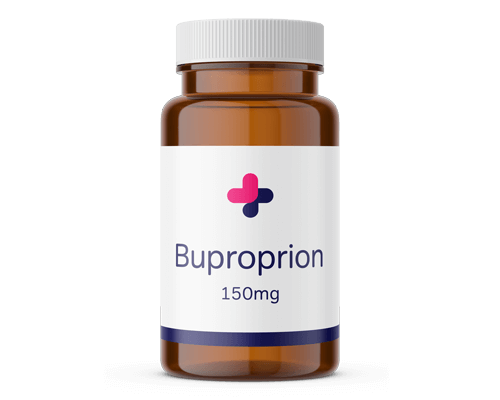Precautions
When used for smoking cessation, serious neurologic and psychiatric events have occurred in patients taking Bupropion. These include mood changes (depression, mania), psychosis, hallucinations, paranoia, delusions, homicidal thoughts, agitation, suicidal thoughts and suicide attempts. These symptoms may be related to nicotine withdrawal and have occurred in patients with and without underlying psychiatric conditions (such as depression). It is important to stop taking Bupropion and contact a health care provider if any side effects occur.
Bupropion is also used to treat psychiatric disorders such as depression. The medication carries important warnings when used to treat psychiatric disorders, including risk of suicidal ideation and related behavior, especially in young adults.
Bupropion should not be used if you have a history of seizures, epilepsy, or are stopping alcohol use suddenly as it can increase the risk of seizures.
Bupropion may cause mild pupil dilation, which can cause an episode of narrow-angle glaucoma in susceptible patients.
Side Effects
The most common side effects (>10%) include:
- Fast heart rate
- Insomnia
- Headache
- Dizziness
- Sweatiness
- Weight Loss
- Dry Mouth
- Constipation
- Nausea/Vomiting
- Tremor
Drug Interactions
Bupropion has the potential to interact with the following medications:
- Ticlopidine
- Clopidogrel (Plavix)
- HIV Medications (Ritonavir, Lopinavir, Efavirenz)
- Antiseizure medications (carbamazepine, phenobarbital, phenytoin)
- Antidepressants (venlafaxine, nortriptyline, imipramine, desipramine, paroxetine, fluoxetine, sertraline)
- Antipsychotics (haloperidol, risperidone, thioridazine)
- Beta-blockers (metoprolol)
- Antiarrhythmics (propafenone, flecainide and other Type 1C antiarrhythmics)
- Parkinson’s disease medications (levodopa, amantadine)
- MAOIs (rasagiline, selegiline) are contraindicated when taking Bupropion
Contraindications
Bupropion should not be taken by patients with the following conditions:
- History of seizure disorder or seizures
- History of bulimia or anorexia nervosa
- Undergoing abrupt discontinuation of alcohol, benzodiazepines (such as Xanax) or anti-seizure medications.
- Taking MAOIs (monoamine oxidase inhibitors) for psychiatric disorders
- Allergy to Bupropion or any of its ingredients
Is Bupropion safe in pregnancy?
Studies of pregnant women who took Bupropion during the first trimester did not show any increased risk of birth defects. However, it has not been studied extensively and there is no long-term data. Bupropion should only be used in pregnancy if the benefit justifies the potential risk to the fetus. The potential for long-term effects on child development and behavior from Bupropion use has not been studied. Always talk to your obstetrician before starting any new medication if you are pregnant, planning to become pregnant or if you are breastfeeding.
Is Bupropion safe for breastfeeding?
Bupropion is present in breast-milk. Seizures and sleep disturbances were reported in breastfeeding infants whose mothers were using Bupropion, and infants should be closely monitored. However, the use of Bupropion is not considered a contraindication to breastfeeding. The risks and benefits of breastfeeding should be discussed with your doctor.
















Quick and discreet
I ordered Azithromycin tablets for chlamydia treatment, received it next day in a brown discreet pack, and cheaper than all other pharmacies, can't ask for more
Jordan McCann